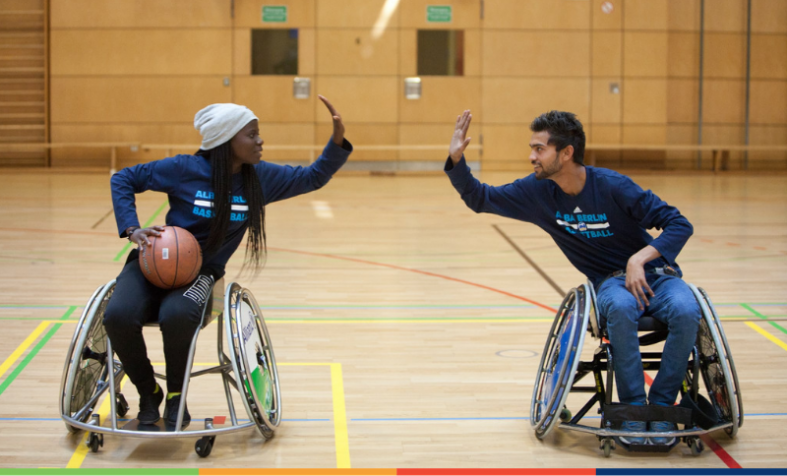
COVID-19 has impacted every aspect of our lives including where and how we can take part in sport and physical activity. The impacts have been unequal, and some are finding it more difficult than others to stay active. This is widening health gaps, at a time when staying active is more important than ever for mental and physical wellbeing.
In celebration of the UN International Day of Sport for Development and Peace (IDSDP) on 6 April 2021, key stakeholders came together to discuss how the impacts of COVID-19 have created a need for, and opportunity to, reinvent and rebuild stronger, fairer, more inclusive physical activity and sport systems for all.
Moderators:
- Dr Fiona Bull, Physical Activity Unit, Department of Health Promotion, World Health Organization (WHO)
- Dr Temo Waqanivalu, Noncommunicable Diseases Department, World Health Organization (WHO)
Opening speakers:
- Dr Tedros Adhanom Ghebreyesus, Director-General, World Health Organization (WHO)
- Dr Naoko Yamamoto, Assistant Director-General, World Health Organization (WHO)
- Ms Gabriela Ramos, Assistant Director-General, Social and Human Sciences, United Nations Educational, Scientific and Cultural Organization (UNESCO)
- Ms Daniela Bas, Director, Division of Inclusive Social Development, United Nations Department for Economic and Social Affairs (UNDESA)
- Mr Thomas Bach, President, International Olympic Committee (IOC)
Panel on “Actions and solutions”:
- Mr Layne Robinson, Head of Social Policy, Economic, Youth & Sustainable Development Directorate, The Commonwealth Secretariat
- Mr Tim Hollingsworth, Chief Executive Officer, Sport England
- Dr Christopher Tufton, Minister of Health, Jamaica
Panel on “Partnering for the future system we want –stronger fairer & inclusive”
- Mr Matthieu Valot, Sport and Development, French Development Agency (AFD)
- Ms Emma Mason, Vice President for Strategic and External Affairs, World Federation of the Sporting Goods Industry (WFSGI)
- Mr Brian Moonga, Country Director, World Bicycle Relief, Zambia
Source: WHO
 Welcome to the United Nations
Welcome to the United Nations